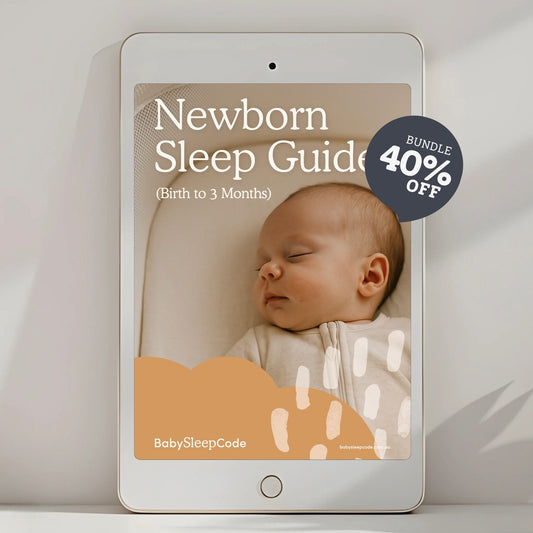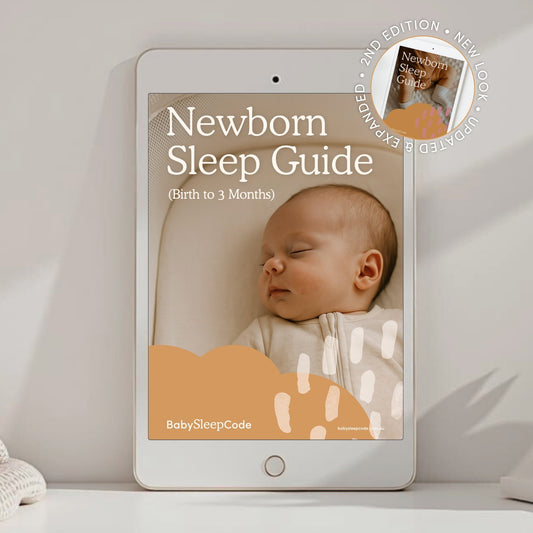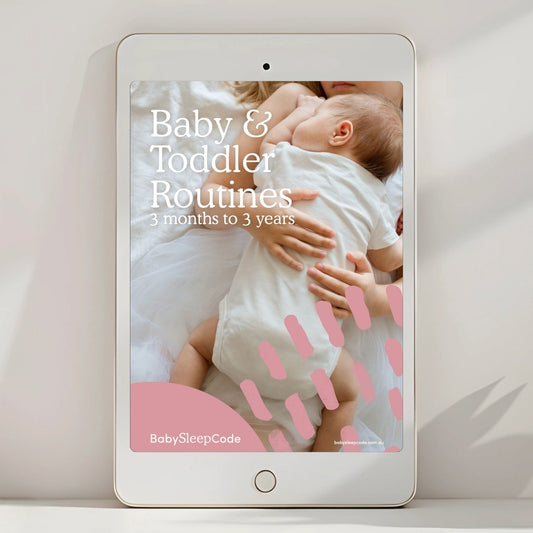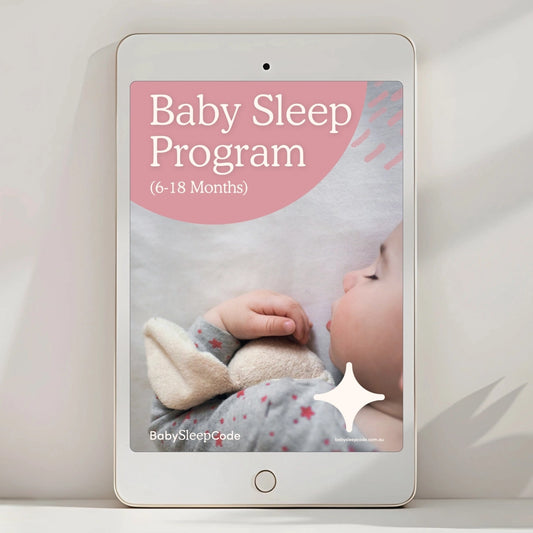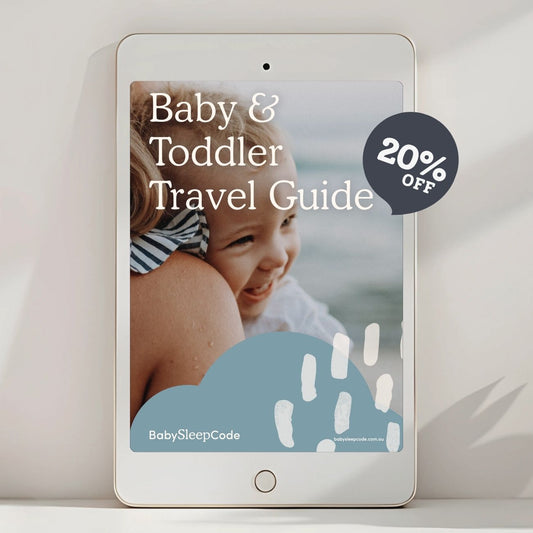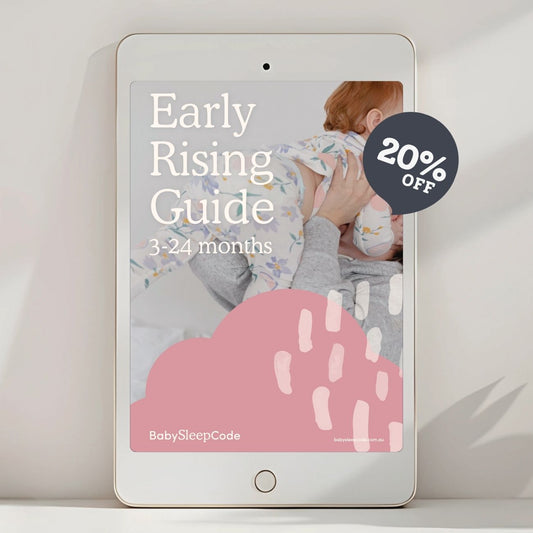First, why is it important for babies and toddlers to get the recommended amount of sleep?
Quality sleep is paramount for a baby's growth and development. During sleep, infants produce growth hormones crucial for physical development. Research indicates that adequate sleep positively influences cognitive function, attention span, and problem-solving skills. Additionally, it supports emotional regulation, promoting a stable mood and reduced irritability. Quality sleep in infancy has also been linked to the development of a healthy immune system, reducing the risk of infections. Adequate sleep also plays a role in regulating metabolic processes and appetite, thereby reducing the likelihood of obesity and metabolic disorders later in life.
But do some babies actually have lower sleep needs than the average?
In our experience, absolutely. Some babies still thrive on less sleep than the average, and trying to force extra sleep can actually lead to more sleep disturbances.
This variation in sleep needs may be influenced by genetic factors, as highlighted in a study led by Dr. Ying-Hui Fu and Dr. Louis Ptáček at the University of California, San Francisco. The study focused on a family with a genetic mutation in the ADRB1 gene, which codes for the β1-adrenergic receptor involved in regulating the sleep/wake cycle. Family members with this mutation required significantly less sleep to feel rested. Interestingly, their sleep quality remained high, suggesting that despite shorter sleep cycles and less overall sleep duration, they had no ill effects.
That is the key to determining whether your baby truly has lower sleep needs: to evaluate both the quality of their sleep and how they manage with less sleep.
What is the minimum recommended amount of sleep for a baby or toddler?
These are the recommended hours of total sleep over a 24-hour period to promote optimum health according to the American Academy of Sleep Medicine (AASM). These recommendations have been endorsed by the American Academy of Pediatrics, the Sleep Research Society, and the American Association of Sleep Technologists.
- Infant (4 - 12 months): Minimum 12 - 16 hours
- Toddler (1 - 2 years): Minimum 11 - 14 hours
- Preschool (3 - 5 years): Minimum 10 - 13 hours
We generally find that most babies need the higher end of this range to sleep soundly day and night and wake content and well-rested. But it might be relieving to know that your baby (if it falls within these ranges) is probably still getting all the sleep they need.
And if you’re still unsure, it might be helpful to look specifically at your baby’s situation:
- Are they getting quality consolidated sleep?
- Are they (generally) happy and content during awake times?
- Are they feeding well and eating well?
- Are they meeting age-appropriate milestones?
What are the signs that a baby might have lower sleep needs?
This can be hard to spot if your baby relies on a strong sleep association to fall asleep, as sometimes it can actually be that the way you’re attempting to get them to sleep isn’t working for them. A baby’s sleep environment, feeding, nutrition, and nap timings can also impact how well a baby sleeps and the duration of sleep.
But if your baby is sleeping relatively well overall, falling asleep independently, and having quality consolidated sleep most of the time, then signs they may have lower sleep needs are:
- Consistently sleeping only 10-11 hours overnight rather than 12, even when you bring their bedtime earlier.
- Having long (but content) wake periods in the night, often referred to as split nights even though you’re following an age-appropriate nap routine.
- Consistently refusing or completely dropping a nap earlier than the average or recommended age.
- Laying awake and content in their crib at bedtime for over 30 minutes every night.
- Waking well-rested after an early morning wake and not naturally (or needing to) fall back to sleep within the first two hours of waking.
What do I do if my baby has low sleep needs?
When babies have lower sleep needs, aiming for an age-appropriate routine can sometimes be tricky. They may start waking earlier in the morning or taking longer to fall asleep at bedtime because they’ve simply reached their 24-hour sleep cap.
As long as your child is getting great quality and consistent sleep as noted above, then you can consider adapting their routines to better suit them. Some parents find it useful to monitor how much sleep their baby gets over a 24-hour period on average over about a week. So say this is always around 12 hours total (maybe 9 hours night sleep and 3 hours naps) you can either reduce their day nap lengths to encourage extra night sleep. Or if they're close to an age where they would be dropping a nap, you might consider dropping this nap early.
Are babies with low sleep needs smarter?
My first was a low sleep needs baby, and I remember reading an article that claimed this. And while it felt nice to have a positive spin on the fact that you had less nap time to enjoy - there isn’t really any clinical evidence or substantial research to back this up. But theoretically, with more time awake comes more time to practice their skills. And anecdotally, when I’ve worked with clients who had a baby that was truly low sleep needs many of them were early crawlers, early walkers, and early talkers.
Low sleep needs versus a solvable sleep issue.
As mentioned, the quality of sleep is just as important as the quantity of sleep. So before being able to assess whether your baby has lower sleep needs, you would want to make sure you solve any underlying sleep issues.
If your baby fights every nap and bedtime, wakes frequently overnight, or rises early, dropping a nap prematurely or shifting bedtime later likely won't help long term. While it might lead to a couple of nights of better sleep due to increased sleep pressure, poor sleep will likely return.


